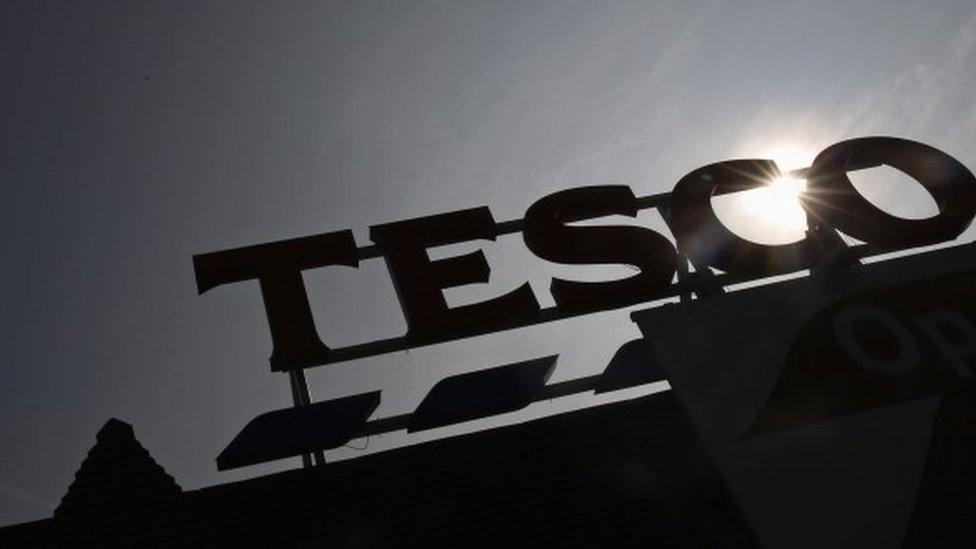Tesco shares hit by warning profit growth to slow
- Published
Tesco boss on sales growth: 'We've listened to our customers'
Tesco's shares have closed down almost 8% after its chief executive Dave Lewis warned that profit improvement would slow in the first half of this year.
Mr Lewis hailed the supermarket's £162m statutory pre-tax profit for the year to 27 February, compared to last year's £6.3bn loss, as "significant progress".
But he also warned the group's "recovery will not be in a straight line as some people might want".
The market remains "challenging, deflationary and uncertain," he added.
He said that continued price cuts, needed to remain competitive, would slow its profit improvement "particularly in the first half".
Tesco's shares, which have risen almost 30% this year, fell 7.8% to 181p.
In an interview with the BBC, Mr Lewis said he wasn't "at all naive about the challenges that still lie ahead of us".
"We have to invest in our business in a time when the market is deflating and there are some significant challenges ahead," he said.
Tesco's results marked its first growth in quarterly sales for three years, with UK like-for-like sales up 0.9% in the fourth quarter.

Analysis: Emma Simpson, BBC business correspondent:
As one analyst put it, the retail shipwreck that was Tesco is now in calmer waters. The business has certainly been stabilised and all important sales volumes are growing. It's no mean achievement given the mess it was in.
But there's a long, hard, road ahead. Tesco may be back in the black after last year's disastrous £6.4bn loss. But it only made £162m pre-tax profit on group sales of £48bn. That's less than 0.5p for every pound going through the tills, a far cry from the 5-8p in the pound it used to make.
The real challenge for Tesco is how to rebuild profits when the market is still cut throat. It's the discounters who remain the fastest growing supermarkets on the high street.
Tesco: Business hits and misses
Tesco starts sell-off ahead of results

Since taking over as Tesco chief in September 2014, Mr Lewis has put Tesco's focus on price cuts and putting more staff in stores in an attempt to revive the company's fortunes.
He took the helm after an accounting scandal in 2014 revealed the group had overstated its profits by some £263m.
Mr Lewis said he was "increasingly confident" the actions the group was taking would result in a continued improvement in profitability.
"More customers are buying more things more often at Tesco," he said.
Operating profit before exceptional items rose slightly to £944m for the year, higher than the £936m forecast by analysts.
Total group sales inched up 0.1% to £48.4bn.
Tesco chief executive Dave Lewis said the group had "regained competitiveness in the UK".
"Our balance sheet is stronger and we are making good progress in rebuilding trust in Tesco and our investment case," he added.
'Stopped the rot'
John Ibbotson, director of retail consultancy Retail Vision, said Mr Lewis had "stopped the rot and the decline in Tesco's market share".
"Its rate of growth is still paltry compared to that of Sainsbury's and the discounters, and the future promises low profits and slow sales growth. But given the huge challenges Tesco faces, this performance looks little short of visionary," he added.
But Bernstein analyst Bruno Monteyne said the supermarket's forward guidance was disappointing.
"Tesco is not really guiding for profit improvements but for profit stagnation," he said.
Alongside its "big four" peers - Asda, Sainsbury's and Morrisons - Tesco has been hit by competition from discount rivals Lidl and Aldi.
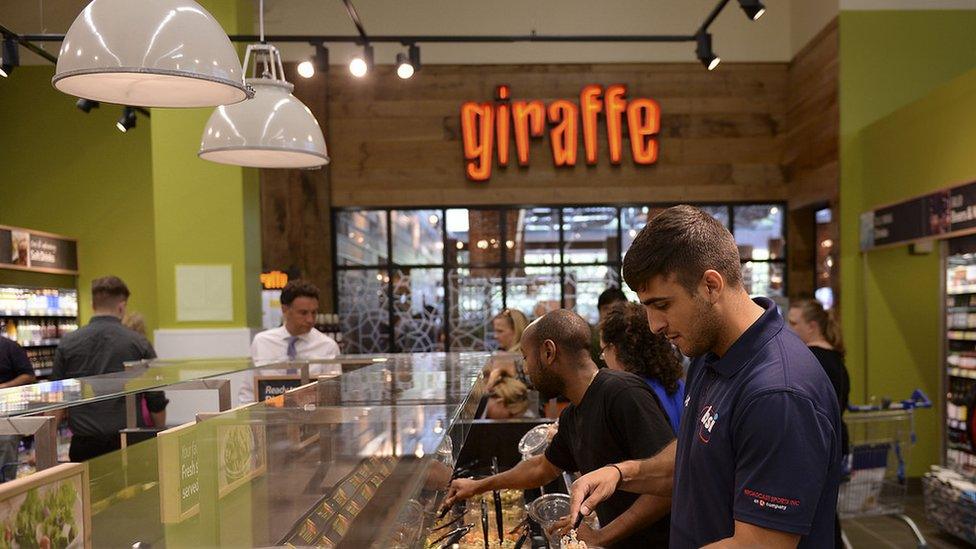
There has been speculation that Tesco might try to sell its Giraffe restaurant chain
The UK has also seen a broad change in shopping habits, with many customers now preferring to shop little and often at small convenience stores, instead of doing a once-a-week "big shop".
Last year's £6.3bn loss, which was largely due to a massive writedown on the value of its UK stores, reflected the shift. Since taking the helm Mr Lewis has shut 60 unprofitable stores and shelved plans to open a further 49 supermarkets.
Mr Lewis has also been selling off assets which are not key to Tesco's main supermarket business.
Last September, Tesco sold its South Korean business, Homeplus, for £4.2bn to help shore up its balance sheet and revitalise its UK business.
Reports have suggested that the supermarket group is now planning to sell off some of its other side businesses, including the Dobbies Garden Centres chain, coffee shop chain Harris & Hoole and restaurant chain Giraffe, so that it can focus on the main supermarket business.
- Published23 June 2016
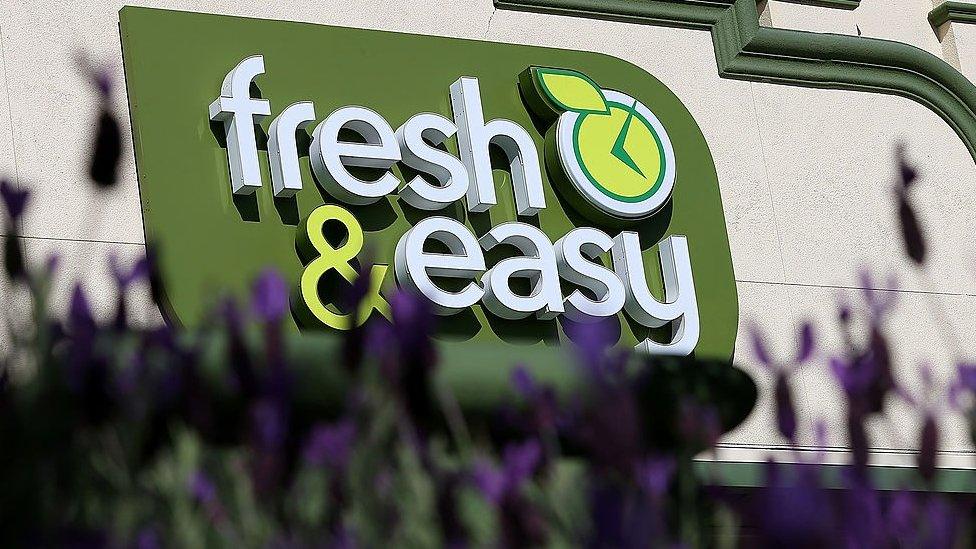
- Published12 April 2016
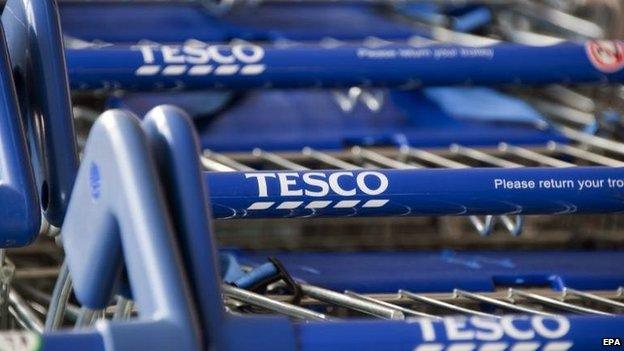
- Published29 January 2016
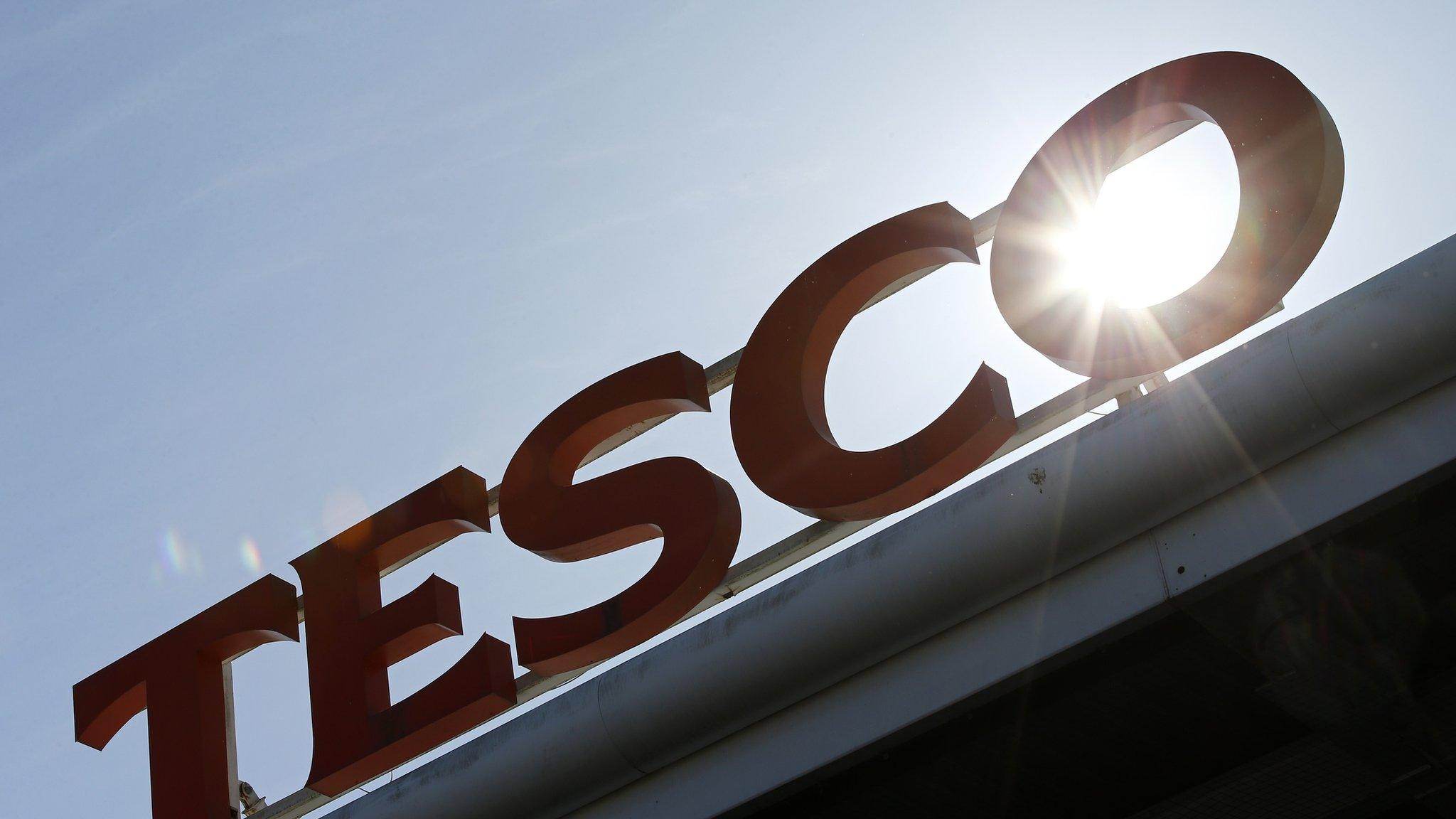
- Published14 January 2016
